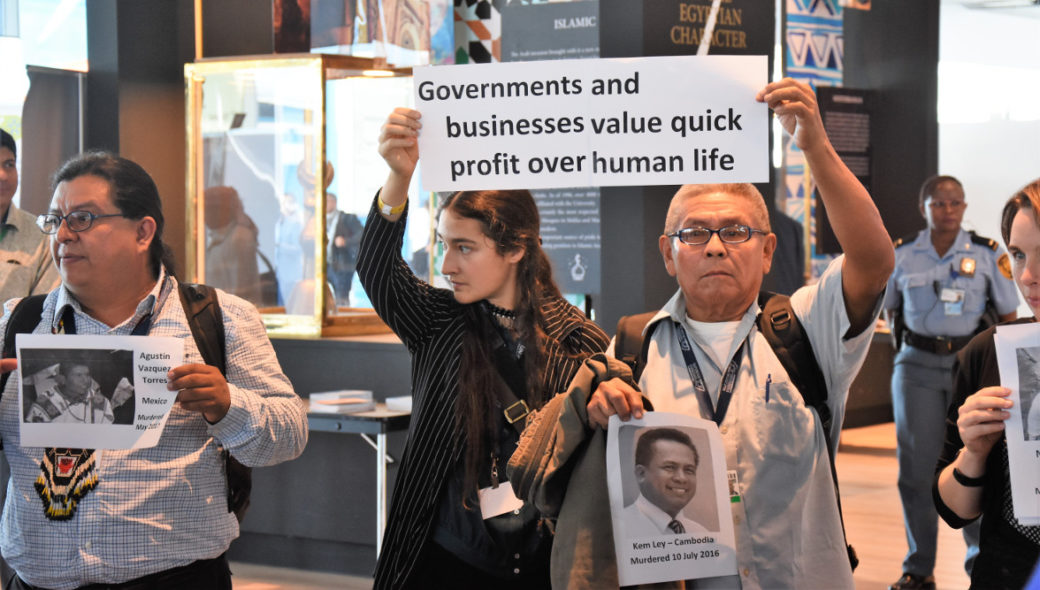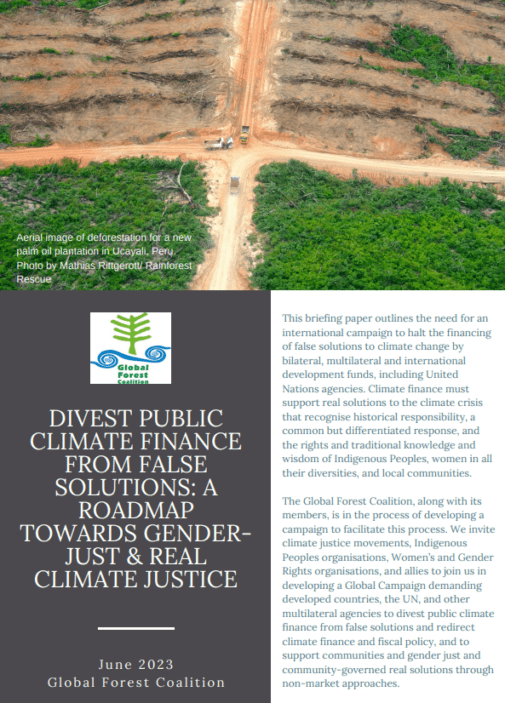CDB COP14 : Qui profite des lecteurs génétiques en tant que biotechnologie moderne?

par Kwami D. Kpondzo, responsable des campagnes pour les Amis de la Terre, au Togo, et pour Point focal régional pour l’Afrique, pour la Coalition mondiale des forêts
Le monde souffre parce que la biodiversité est mal protégée et mal préservée. La question demeure, comment envisageons-nous de conserver la biodiversité pour une vie meilleure sur Terre? Est-ce par le savoir traditionnel ou par la technologie moderne? En effet, de nos jours, la biotechnologie moderne est mise de l’avant comme la solution pour améliorer la vie des êtres humains sur Terre. Cette technologie envahit les domaines de l’agriculture, de l’exploitation forestière et de la pêche dans le but d’améliorer la productivité. Elle est à la base de la destruction de la biodiversité et du déséquilibre dans l’harmonie de la nature.
Continuez à lire en anglaise…
In addition, the introduction of biotechnologies such as genetically modified organisms (GMOs), synthetic biology and gene drives (digital sequence information technologies) have an impact on the livelihoods of communities. GMOs were originally promoted with the claim that they would benefit people and biodiversity as well, but this is not the case. The example of failed BT cotton in India and Burkina are examples of why we do not need these risky and failed technologies.
In India, the Andhra Pradesh Coalition, in its report titled “Did BT cotton still fail in Andhra Pradesh in 2003-2004?”, investigated the cases of 164 small-scale farmers in three districts in Andhra Pradesh between 2003 and 2004. The report states that BT cotton increased yields insignificantly and that overall profits of farmers growing BT cotton were reduced by 9%.
In Africa, a COPAGEN report titled “BT Cotton and us – The Truth of Our Fields! “, published in April 29, 2017, draws a damning conclusion. It describes the consequences, in Burkina Faso, of genetically modified cotton cultivation developed by Monsanto. The field research over a period of three years involving 203 cotton producers clearly showed that in the 2014-2015 and 2015-2016 cotton seasons, yields were lower than those of conventional cotton. These examples show the danger of the use of these modern biotechnologies in agriculture.
There is clearly a conflict of interest between the conservation of biodiversity and the use of genetically modified organisms and other forms of modern biotechnology like gene drives. Gene drives could have a serious impact on human health, environment and biodiversity.
In light of the various findings on the use of modern biotechnology in agriculture, there is every reason to believe that the promoters of modern biotechnology are benefiting from it.
We say NO to gene drives and all false solutions to the biodiversity crisis.







